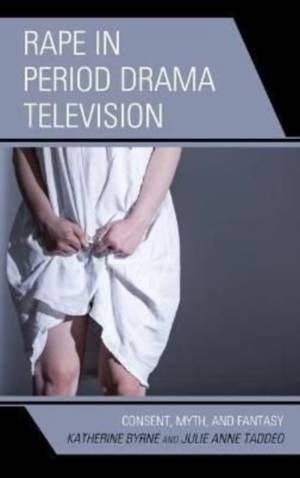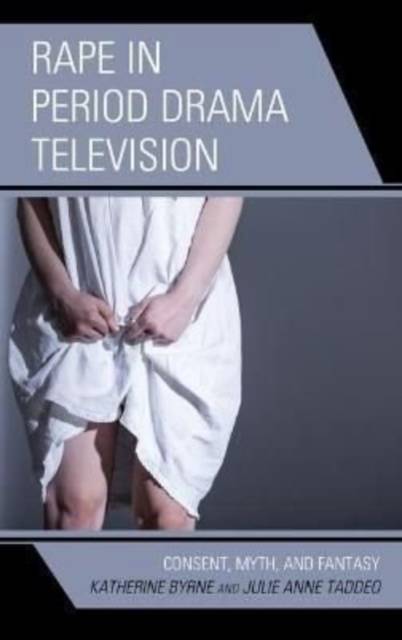
- Afhalen na 1 uur in een winkel met voorraad
- Gratis thuislevering in België vanaf € 30
- Ruim aanbod met 7 miljoen producten
- Afhalen na 1 uur in een winkel met voorraad
- Gratis thuislevering in België vanaf € 30
- Ruim aanbod met 7 miljoen producten
Zoeken
Rape in Period Drama Television
Consent, Myth, and Fantasy
Katherine Byrne, Julie Anne Taddeo
Hardcover | Engels
€ 186,95
+ 373 punten
Omschrijving
Rape in Period Drama Television considers the representation of rape and rape myths in a number of the most influential recent television period dramas. Like the corset, has become a shorthand for women's oppression in the past. Sexual violence has long been, and still is, commonplace in television period drama, often used to add authenticity and realism to shows or as a sensationalist means of chasing ratings. However, the authors illustrate that the depiction of rape is more than a mere reminder that the past was a dangerous place for women (and some men). In these series, they argue, rape functions as a kind of "anti-heritage" device that dispels the nostalgia usually associated with period television and reflects back on the current cultural moment, in which the #MeToo and #Timesup movement have increased awareness of the prevalence of sexual abuse, but in which legal and political processes have not yet caught up. In doing so, Rape in Period Drama Television sets out to explore the assumptions and beliefs which audiences continue to hold about rape, rapists, and victims.
Specificaties
Betrokkenen
- Auteur(s):
- Uitgeverij:
Inhoud
- Aantal bladzijden:
- 154
- Taal:
- Engels
Eigenschappen
- Productcode (EAN):
- 9781793625854
- Verschijningsdatum:
- 4/03/2022
- Uitvoering:
- Hardcover
- Formaat:
- Genaaid
- Afmetingen:
- 152 mm x 229 mm
- Gewicht:
- 376 g

Alleen bij Standaard Boekhandel
+ 373 punten op je klantenkaart van Standaard Boekhandel
Beoordelingen
We publiceren alleen reviews die voldoen aan de voorwaarden voor reviews. Bekijk onze voorwaarden voor reviews.








